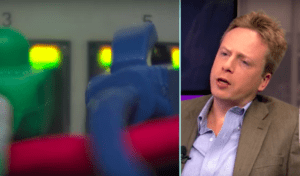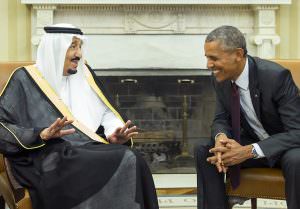Hacker, Hoaxer, Whistleblower, Spy
As the surveillance state has harnessed the very technologies that were supposed to liberate us, a new book explores the shadowy world of Anonymous, an online "community" that has targeted corporations and governments guilty of perceived offenses against digital liberty. Verso Books
Verso Books
Verso Books
|
To see long excerpts from “Hacker, Hoaxer, Whistleblower, Spy” at Google Books, click here. |
“Hacker, Hoaxer, Whistleblower, Spy: The Many Faces of Anonymous” A book by Gabriella Coleman
We’ve reached a curious moment in the digital revolution. The surveillance state has harnessed the very technologies that were supposed to liberate us. High-tech corporations have made that surveillance easier and more efficient. A handful of organizations are fighting to protect civil liberties in cyberspace, but especially in the aftermath of 9/11, the federal government has successfully and repeatedly invoked the national security card to weaken protections against illegal searches. Meanwhile, hackers are probing weaknesses in websites and databases and selling their results on the underground market — often to governments, especially ours.
Against this backdrop, Gabriella Coleman’s new book, “Hacker, Hoaxer, Whistleblower, Spy: The Many Faces of Anonymous,” considers the shadowy world of Anonymous, a loosely defined online community that has targeted corporations and governments guilty of perceived offenses against digital liberty. Originally driven by the desire for laughs (“lulz,” in the online argot), its members have specialized in shutting down websites and revealing embarrassing personal information about their targets. Trained as an anthropologist, Coleman spent years infiltrating and studying the group’s inner circles and customs.
Coleman’s title echoes a John le Carré spy novel, but Anonymous bears little resemblance to the British intelligence agency MI6. “Before 2008,” Coleman writes, “the moniker Anonymous was used almost exclusively for what one Anon describes as ‘Internet motherfuckery.’ ” That year, however, Anonymous entered new territory by targeting the Church of Scientology. In 2011, it hacked the customer data of Bay Area Rapid Transit (BART) after officials disabled mobile phone reception on train platforms to thwart a protest against police violence. That summer, Anonymous also publicized rape cases, became involved in Occupy Wall Street, assisted the Arab and African Spring, and hacked Fortune 500 companies and corporate intelligence firms, thereby attracting the FBI’s attention.
Anonymous’ chat rooms are dominated by young (sometimes very young) men. Their language is clipped and frequently coarse, and few things are sacred. In theory, anyone may join the group; in practice, key players often set up exclusive channels to discuss tactics and strategy. Its members tend not to share their offline identities, but the group has developed a distinct ethos. Anyone may invoke the group’s name, but there’s a strong aversion to those who seek personal recognition (“namefags”) through its activities. For some of the group’s history, too, political capers (and “moral faggotry” more generally) were suspect. Coleman declines to cast Anonymous as heroic, preferring to compare the group to a trickster, the amoral pleasure-seeker of traditional mythology.
What we learn about Anonymous is refracted through Coleman’s experience of researching it. We hear about her conferences, teaching schedules, TED talks, and briefings with national security agencies. Her voice oscillates between casual first-person narration (“It sucks to get kicked off a channel”) and academic abstraction that aspires to verse. The latter register appears only sporadically, but it produces several doozies, including this sentence about the nature of virtual community:
Each body taken alone provides the vector for an irreducibly unique and complex individual history — mirroring in its isolation the complexity of all social phenomena as a whole — which can itself be reduced yet further, to the order of events: mere flights of fingers and an occasional mouse gesture which register elsewhere, on a screen, as a two-dimensional text or a three-dimensional video; the song their fingers play on these keyboards ringing forth in a well-orchestrated, albeit cacophonous and often discordant, symphony; it is sung in the most base and lewd verse, atonal and unmetered, yet enthralling to many: the mythical epic of Anonymous.
Quite aside from shifts in tone, Coleman’s story is difficult to follow. Part of the challenge can be traced to technical complexities, the quirks of online self-representation, and the anarchic tendency to dissolve and reassemble in slightly different configurations. But Coleman’s style also contributes to the mystery. Her first-person narration heightens the story’s immediacy, but the reader must piece together the group’s story from scattered episodes separated by personal and methodological reflections. Instead of presenting her story as a finished entrée, Coleman invites us into the kitchen to show us how she whips the eggs. From time to time, she even describes her trips to the metaphorical supermarket.The political stakes of Coleman’s account become clearer toward the end of the book. By the time she meets an Anonymous member, known online as Sabu, in New York City, Hector Xavier Monsegur had become an FBI informant. He continued to chat online with characteristic swagger, but in 2012, he confided to Coleman that Fox News would soon expose his relationship with the FBI. Monsegur explained to Coleman that he had to cooperate or lose custody over his adopted cousins.
With Monsegur’s help, the FBI charged four Anonymous members after an audacious hack of Strategic Forecasting Inc., an intelligence firm that published a newsletter for corporate clients. Jeremy Hammond, an Anonymous member, accessed the firm’s emails and other private data and sent that information to WikiLeaks. Those communications indicated that Stratfor (as the company was known) also tracked political activists for its clients. Coca Cola, for example, hired Stratfor to monitor PETA in the lead-up to the Winter Olympics in Vancouver.
The indictments were a serious setback for Anonymous. The same day Fox News identified Sabu and arrested Hammond, the FBI searched the residence of Barrett Brown, a writer and activist with links to Anonymous. (Ironically, some Anonymous members had tagged Brown as a “namefag” long before his legal problems began.) Hammond received a 10-year sentence, and activists are still defending Brown, who copied a stolen Stratfor file containing credit card data from an Anonymous chat room and pasted it in another group’s chat room. Brown was convicted of identity theft and received a sentence of 63 months. Meanwhile, Monsegur served seven months, and that only because he violated his bail conditions by writing a blog post and chatting with an Anonymous participant.
In her conclusion, Coleman places the Anonymous story alongside the sagas of Julian Assange, Chelsea Manning and Edward Snowden. She also quotes a former U.S. official on Snowden’s flight to Russia to seek political asylum. The Israelis, this official told an audience at an international conference on defense and security, said that Snowden “should have never been allowed to get on that plane.” If they had been in charge, the Israelis continued, “the plane would have never landed.” After the uproarious laughter subsided, the U.S. official added, “I still might subscribe to their point of view.” Not a word, of course, about the government overreach that Snowden’s leak revealed.
In Laura Poitras’ 2014 documentary, “Citizenfour,” Snowden comes off as principled, purposeful and sober. In contrast, many of Coleman’s subjects seem callow, mischievous or both. But their story raises issues closely related to Snowden’s case. Coleman’s book is important not only for its insight into the world of Anonymous, but also for illustrating the broader tension between unchecked government and corporate power and the stubborn urge to protect our civil rights and liberties, including privacy, in the digital age.
Your support matters…Independent journalism is under threat and overshadowed by heavily funded mainstream media.
You can help level the playing field. Become a member.
Your tax-deductible contribution keeps us digging beneath the headlines to give you thought-provoking, investigative reporting and analysis that unearths what's really happening- without compromise.
Give today to support our courageous, independent journalists.





You need to be a supporter to comment.
There are currently no responses to this article.
Be the first to respond.